Simba Team Ziwani Update: 01 September 2005
Participants
Wambua Kikwatha – team leader Henry Lekochere John Mungai Julius Mutamu Gerald Maghanga 2 KWS rangers
Area Covered
The areas patrolled this month were Murka, the general area around Maktau, Kishushe Ranch, along the Tsavo and Mukuru River, and along the Mzima water pipe line. We also visited Salt Lick, the Lumo community sanctuary and patrolled along the Taveta-Voi main road.
TOTAL SNARES COLLECTED 303
Findings
The Tsavo River and Mzima springs water pipeline had not been patrolled for some time. The only area in this region that had previously been visited over the past months was Kagechwa hill. As a result a lot of poachers have moved into this area to carry out their poaching activities as accessibility to this area is difficult and also due to the fact that there is plenty of water available, due to the presence of the water pipeline and the Mukuru river, for both the poachers and the wildlife that come here to quench their thirst.
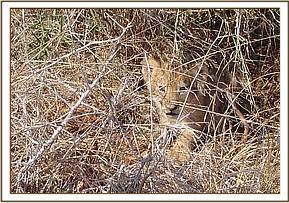
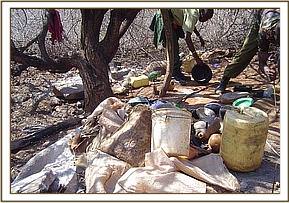
Due to the fact that last month we were able to arrest 5 poachers numerous snares were left unattended, but were sadly still effective as 4 lesser Kudu,
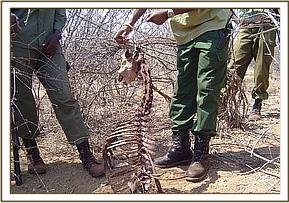

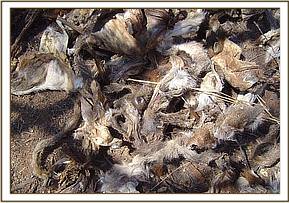
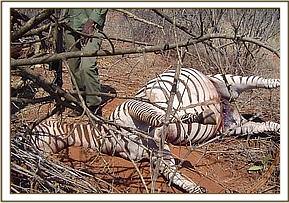

We found that the highest amount of poaching was taking place in the Taita hill ranch and Salt lick areas, and is carried out as close as 5 meters from the main road, and 5 kilometers from Taita hills lodge. The poaching here is for big game. After finding some zebra meat that had been stored up in a tree
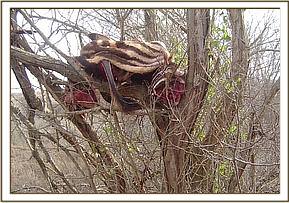
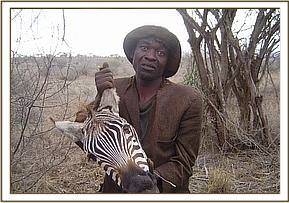


The Maktau general area had the least amount of poaching activities as no snares were found. This is probably a result of our continued de-snaring activities in this area. We observed that mining for gemstones was taking place near Maktau, we were unable to trace the miners and thus do not know then the mining takes place.
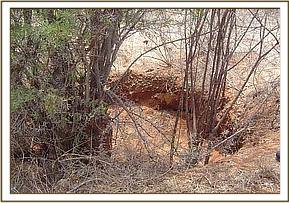
A visit to Kishushe ranch and the areas around the Mukuru River yielded no snares. We tried to locate an elephant that had been killed by poachers. We found out that the elephant had been killed using a strong poison which consequently killed the six dogs that had feasted on the carcass. The poachers warn the villagers that the meat is contaminated and should therefore not be eaten by painting an X on the dead elephant.
We feel that poaching in most parts of Ziwani has decreased. However we have found that poachers from Mtito Andei and Kitui have penetrated the Tsavo River, which means that we need to carry out more patrols in this area. A total of 303 snares were lifted and one poacher was arrested.
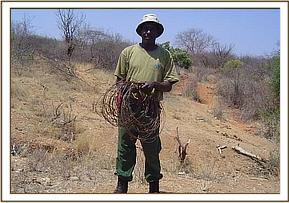
Report by Wambua Kikwatha